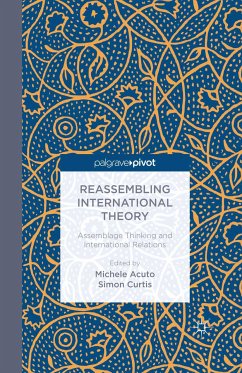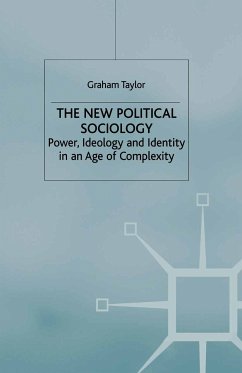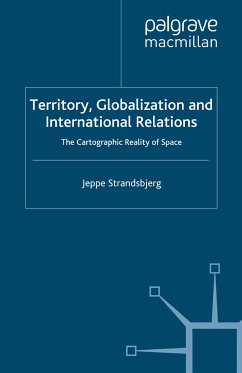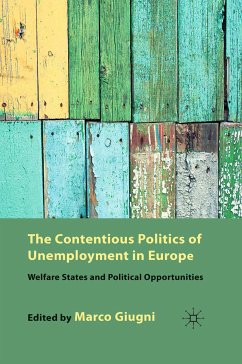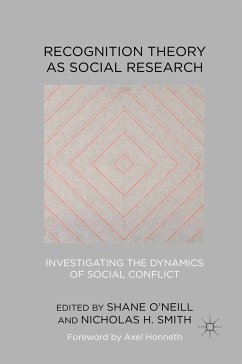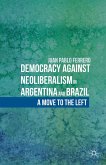Simon CurtisAssemblage Thinking and International Relations
Reassembling International Theory (eBook, PDF)
Assemblage Thinking and International Relations
Redaktion: Acuto, M.
53,95 €
53,95 €
inkl. MwSt.
Sofort per Download lieferbar

27 °P sammeln
53,95 €
Als Download kaufen

53,95 €
inkl. MwSt.
Sofort per Download lieferbar

27 °P sammeln
Jetzt verschenken
Alle Infos zum eBook verschenken
53,95 €
inkl. MwSt.
Sofort per Download lieferbar
Alle Infos zum eBook verschenken

27 °P sammeln
Simon CurtisAssemblage Thinking and International Relations
Reassembling International Theory (eBook, PDF)
Assemblage Thinking and International Relations
Redaktion: Acuto, M.
- Format: PDF
- Merkliste
- Auf die Merkliste
- Bewerten Bewerten
- Teilen
- Produkt teilen
- Produkterinnerung
- Produkterinnerung

Bitte loggen Sie sich zunächst in Ihr Kundenkonto ein oder registrieren Sie sich bei
bücher.de, um das eBook-Abo tolino select nutzen zu können.
Hier können Sie sich einloggen
Hier können Sie sich einloggen
Sie sind bereits eingeloggt. Klicken Sie auf 2. tolino select Abo, um fortzufahren.

Bitte loggen Sie sich zunächst in Ihr Kundenkonto ein oder registrieren Sie sich bei bücher.de, um das eBook-Abo tolino select nutzen zu können.
What can 'assemblage' thinking contribute to the study of international relations theory? This study seeks to investigate how the various debates on assemblages in social theory can contribute to generating critical considerations on the connections and dissociation of political agency, physical world and international dynamics.
- Geräte: PC
- ohne Kopierschutz
- eBook Hilfe
- Größe: 3.44MB
Andere Kunden interessierten sich auch für
![Power, Information Technology, and International Relations Theory (eBook, PDF) Power, Information Technology, and International Relations Theory (eBook, PDF)]() D. MccarthyPower, Information Technology, and International Relations Theory (eBook, PDF)40,95 €
D. MccarthyPower, Information Technology, and International Relations Theory (eBook, PDF)40,95 €![Social Movements in a Globalising World (eBook, PDF) Social Movements in a Globalising World (eBook, PDF)]() Hanspeter KriesiSocial Movements in a Globalising World (eBook, PDF)73,95 €
Hanspeter KriesiSocial Movements in a Globalising World (eBook, PDF)73,95 €![The New Political Sociology (eBook, PDF) The New Political Sociology (eBook, PDF)]() G. TaylorThe New Political Sociology (eBook, PDF)73,95 €
G. TaylorThe New Political Sociology (eBook, PDF)73,95 €![Territory, Globalization and International Relations (eBook, PDF) Territory, Globalization and International Relations (eBook, PDF)]() J. StrandsbjergTerritory, Globalization and International Relations (eBook, PDF)40,95 €
J. StrandsbjergTerritory, Globalization and International Relations (eBook, PDF)40,95 €![The Contentious Politics of Unemployment in Europe (eBook, PDF) The Contentious Politics of Unemployment in Europe (eBook, PDF)]() The Contentious Politics of Unemployment in Europe (eBook, PDF)40,95 €
The Contentious Politics of Unemployment in Europe (eBook, PDF)40,95 €![Recognition Theory as Social Research (eBook, PDF) Recognition Theory as Social Research (eBook, PDF)]() Shane O'NeillRecognition Theory as Social Research (eBook, PDF)40,95 €
Shane O'NeillRecognition Theory as Social Research (eBook, PDF)40,95 €![Democracy against Neoliberalism in Argentina and Brazil (eBook, PDF) Democracy against Neoliberalism in Argentina and Brazil (eBook, PDF)]() J. FerreroDemocracy against Neoliberalism in Argentina and Brazil (eBook, PDF)40,95 €
J. FerreroDemocracy against Neoliberalism in Argentina and Brazil (eBook, PDF)40,95 €-
-
-
What can 'assemblage' thinking contribute to the study of international relations theory? This study seeks to investigate how the various debates on assemblages in social theory can contribute to generating critical considerations on the connections and dissociation of political agency, physical world and international dynamics.
Dieser Download kann aus rechtlichen Gründen nur mit Rechnungsadresse in A, B, BG, CY, CZ, D, DK, EW, E, FIN, F, GR, HR, H, IRL, I, LT, L, LR, M, NL, PL, P, R, S, SLO, SK ausgeliefert werden.
Produktdetails
- Produktdetails
- Verlag: Palgrave Macmillan UK
- Seitenzahl: 146
- Erscheinungstermin: 1. Dezember 2013
- Englisch
- ISBN-13: 9781137383969
- Artikelnr.: 44904142
- Verlag: Palgrave Macmillan UK
- Seitenzahl: 146
- Erscheinungstermin: 1. Dezember 2013
- Englisch
- ISBN-13: 9781137383969
- Artikelnr.: 44904142
- Herstellerkennzeichnung Die Herstellerinformationen sind derzeit nicht verfügbar.
Rita Abrahamsen, University of Ottawa, Canada Roland Bleiker, University of Queensland, Australia Antoine Bousquet, Birkbeck College, University of London, UK. Christian Bueger, Cardiff University, UK David Chandler, University of Westminster, UK Stephen Collier, New School, USA Olaf Corry, Open University, UK Xavier Guillaume, University of Edinburgh, UK Graham Harman, The American University, Cairo Debbie Lisle, Queen's University Belfast, UK Maximilian Mayer, Bonn University, Germany Aihwa Ong, University of California, Berkeley, USA Mark Salter, University of Ottawa, Canada Saskia Sassen Columbia University, USA Peer Schouten, University of Gothenburg, Sweden Nick Srnicek, London School of Economics, UK Michael Williams, University of Ottawa, Canada
1. Assemblage thinking and International Relations; Michele Acuto and Simon Curtis PART 1: THEORIES 2. Conversation with Saskia Sassen and Aihwa Ong 3. Conversation with Michael Williams and Rita Abrahmsen 4. Conversation with Stephen Collier PART 2: ONTOLOGIES OF ASSEMBLAGE 5. Cognitive assemblages and the production of knowledge; Nick Srnicek 6. Global assemblages and structural models of international relations; Olaf Corry PART 3: METHODS OF ASSEMBLAGE 7. Thinking Assemblage Methodologically: Some rules of thumb; Christian Bueger 8. Energising the International; Debbie Lisle 9. Visual Assemblages: From Causality to Conditions of Possibility; Roland Bleiker PART 3 - MATERIALITIES OF ASSEMBLAGE 10. Security in action: how John Dewey can help us follow the production of security assemblages; Peer Schouten 11. Welcome to the Machine: Rethinking Technology through Assemblage Theory; Antoine Bousquet PART 4: POLITICS OF ASSEMBLAGE 12. The onto-politics of assemblage; David Chandler 13. Agencement and Traces: A Politics of Ephemeral Theorizing; Xavier Guillaume 14. The Assemblage and the Intellectual as Hero; Mark Salter Conclusions: Assemblage Theory and its Future; Graham Harman
1. Assemblage thinking and International Relations; Michele Acuto and Simon Curtis PART 1: THEORIES 2. Conversation with Saskia Sassen and Aihwa Ong 3. Conversation with Michael Williams and Rita Abrahmsen 4. Conversation with Stephen Collier PART 2: ONTOLOGIES OF ASSEMBLAGE 5. Cognitive assemblages and the production of knowledge; Nick Srnicek 6. Global assemblages and structural models of international relations; Olaf Corry PART 3: METHODS OF ASSEMBLAGE 7. Thinking Assemblage Methodologically: Some rules of thumb; Christian Bueger 8. Energising the International; Debbie Lisle 9. Visual Assemblages: From Causality to Conditions of Possibility; Roland Bleiker PART 3 - MATERIALITIES OF ASSEMBLAGE 10. Security in action: how John Dewey can help us follow the production of security assemblages; Peer Schouten 11. Welcome to the Machine: Rethinking Technology through Assemblage Theory; Antoine Bousquet PART 4: POLITICS OF ASSEMBLAGE 12. The onto-politics of assemblage; David Chandler 13. Agencement and Traces: A Politics of Ephemeral Theorizing; Xavier Guillaume 14. The Assemblage and the Intellectual as Hero; Mark Salter Conclusions: Assemblage Theory and its Future; Graham Harman
